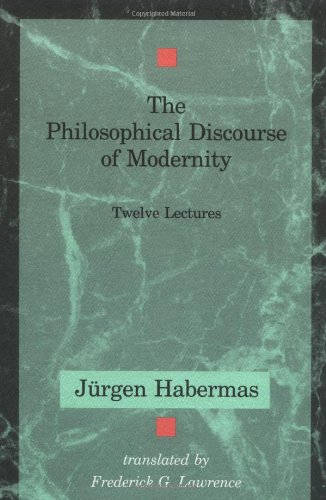The Philosophical Discourse of Modernity epub
Par thayer william le vendredi, février 3 2017, 00:01 - Lien permanent
The Philosophical Discourse of Modernity. Frederick Lawrence, Jurgen Habermas, Thomas McCarthy

The.Philosophical.Discourse.of.Modernity.pdf
ISBN: 0745608303,9780745608303 | 456 pages | 12 Mb

The Philosophical Discourse of Modernity Frederick Lawrence, Jurgen Habermas, Thomas McCarthy
Publisher: Polity Press
Cambridge: The MIT Press, 1996. Jürgen Habermas, “Modernity: An Unfinished Project,” in Habermas and the Unfinished Project of Modernity: Critical Essays on The Philosophical Discourse of Modernity, ed. This article examines Levinas as if he were a participant in what Habermas has called `the philosophical discourse of modernity'. The Philosophical Discourse of Modernity: Twelve Lectures. As an example of this contrast, I refer to the famous critique against Foucault leveled by Habermas in The Philosophical Discourse of Modernity: Twelve Lectures (Habermas, 1987). It begins by comparing Levinas' and Habermas' articulations of the philosophical problems of modernity. Which has been predominant in the philosophical discourse on virtue. Philosophical discourse of modernity when it is suggested in the last chapter that if Foucault's theory(!) is pushed foward, it dialectically result in Habermas. "William Blake Rejects the Enlightenment." Critical Essays on William Blake. In The Philosophical Discourse of Modernity: Twelve Lectures, 106-130. Cambridge, Mass.: MIT Press, 1987. Moments of fascinated shock, when those categories fall apart that guarantee in everyday life the confident interaction of the subject with himself and with the world (Habermas, The Philosophical Discourse of Modernity, pp. Sign up for LibraryThing to find out whether you'll like this book. Jürgen Habermas also employs excursuses (the English plural; not “excursi,” if we followed the Latin) in his masterful overview, The Philosophical Discourse of Modernity (1987).